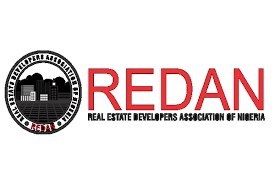The National President of the Real Estate Developers Association of Nigeria (REDAN), Akintoye Adeoye, has advised the Lagos State Government to be more cautious in the language it uses when addressing real estate regulation matters. Adeoye cautioned that branding estates without layout plan approvals as “illegal” could have damaging consequences on investor confidence and the property market in Lagos.
Speaking in response to the recent publication by the Lagos State Ministry of Environment and Physical Planning, which listed more than 170 estates as “illegal developments,” Adeoye stressed that such a description was too strong and could trigger fear among property buyers and investors.
“These developers may not have layout plan approval, but branding the estate as illegal is a very strong word, and the government should be careful with the use of the word,” Adeoye said. “We have owners of these projects, we have subscribers who have invested their savings, and such language will definitely demarket the estate. It’s not just about the developers alone.”
He explained that calling estates “illegal” might create panic in the real estate sector and discourage people from investing in property development across Lagos. “So, people will begin to be afraid of investing in Lagos estate, and it creates a shock wave. It creates a kind of trepidation, and it affects the markets,” he said.
According to Adeoye, there are better ways to present the issue without creating unnecessary anxiety. He suggested that the government should use terms such as “regularisation required” instead of “illegal.” “If the government put it out there that we have 176 estates that require regularisation of their layout plan approval, then probably the underlisted estates should contact the Ministry of Environment and Planning for the regularisation within 21 days, that would be much milder,” he advised.
He explained that such an approach would encourage compliance without damaging the reputation of developers or frightening potential buyers. “That will not create shock or discourage people that are patronising developers or buying property in the estate. For example, we have developers whose names were published on that list, and some of them already have their layout approval documents. Some even bought their land directly from the government, obtained Certificates of Occupancy, and completed their approval process, yet they were listed as illegal. That is why I believe the word ‘regularisation’ is more appropriate,” Adeoye said.
The REDAN president emphasised the need for the Lagos State Government to adopt more measured language when engaging the public on sensitive matters, especially at a time when the property market is already under pressure. “The market is already tense, and we should not make it more tense. Using softer language will help avoid sending shock waves into the sector,” he stated.
Despite his concerns, Adeoye acknowledged the strong working relationship between REDAN and the Lagos State Government. He noted that the two parties have partnered on several initiatives, including training and certification programmes for developers. “The Lagos State government is collaborating very well with our association; we partner together on so many fronts. For example, we are doing certification of members through training, and Lagos State is actively participating in this process. So, they are good allies, and we are working together very well,” he explained.
He, however, maintained that as president of REDAN, it was important to raise concerns when necessary. “What I am saying is that the government should just use words and language that don’t create tension and fear in the minds of subscribers and investors. That way, the market remains stable, and confidence is preserved,” he added.
The Lagos State Government’s recent announcement has sparked controversy across the real estate sector. Many developers, property owners, and investors expressed concern that the classification of estates as “illegal” could damage reputations and discourage future investments in the state’s growing property market.
Industry observers believe that while regulation is necessary to enforce proper planning and urban development, communication strategies should be handled carefully to balance compliance with investor confidence. Stakeholders are now calling for a review of the wording used in government publications to ensure that regulation does not come at the expense of market stability.
